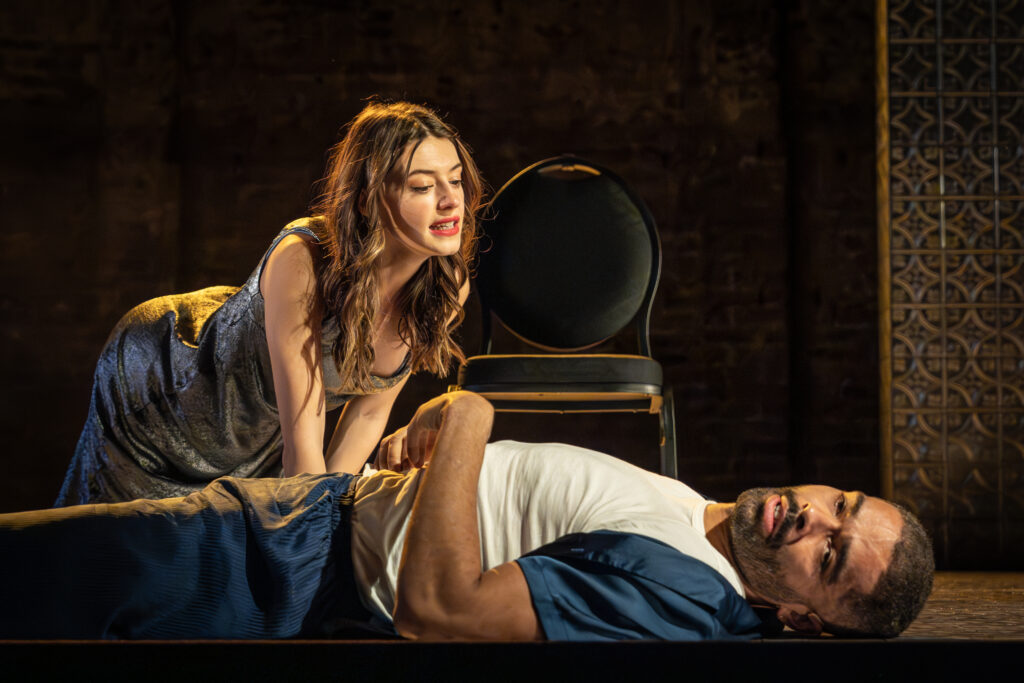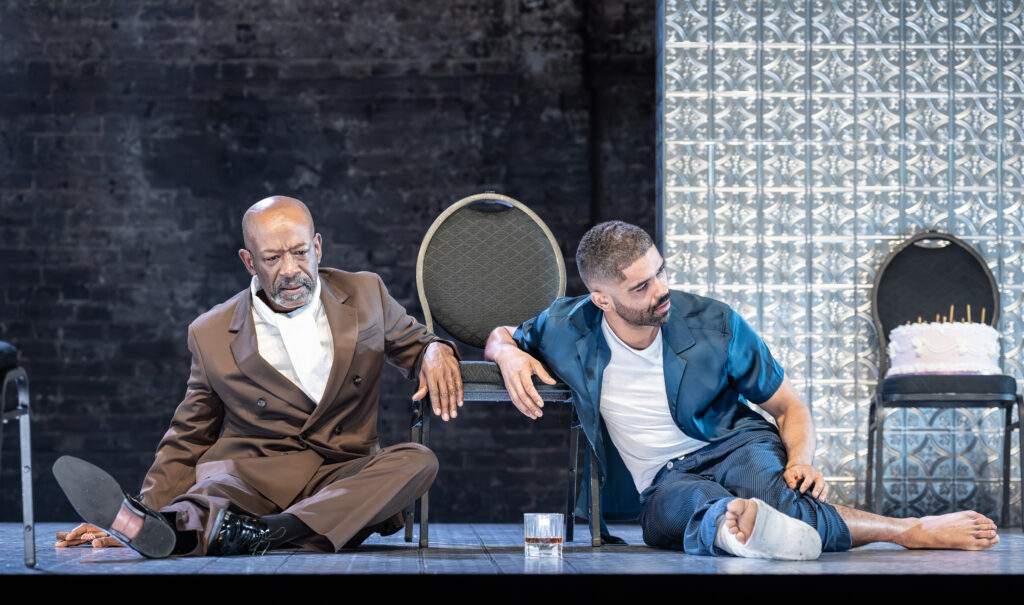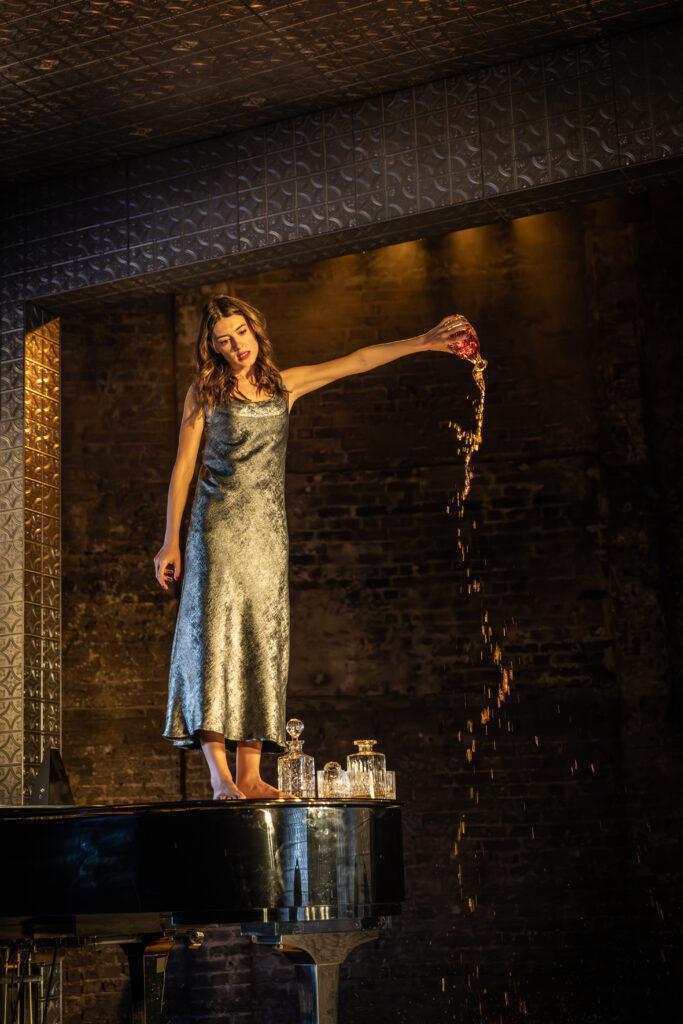
Perhaps before appointing a successor to its departing artistic director Rupert Goold, the Almeida should allow Rebecca Frecknell free rein in a season of Tennessee Williams plays, a la Jamie Lloyd’s Pinter at the Pinter season. She’s already made good headway having ticked off Smoke & Summer and the Paul Mescal-fronted A Streetcar Named Desire at the Almeida and she now directs Mescal’s Normal People co-star Daisy Edgar Jones in Williams’ Cat on a Hot Tin Roof.
Frecknell shows that you don’t require the heat of a Memphis Plantation to bring some fire to affairs as she transports events from the 1950s to an undefined modern setting. The action takes place in a silver-tiled box structure that is anxiety-inducing in its empty sheen, matching the vacant expression on Brick’s (Kingsley Ben-Adir) liquor-sodden face. Goodbye Southern Gothic, this is a tense and stunning psychological horror.

It’s Big Daddy’s (Lennie James) 65th birthday party and, unbeknownst to him and his suffering wife, Big Momma (Clare Burt), he’s dying of cancer. The lack of a will has sent his family into a civil war over the future of his 28,000-acre estate – on one side Big Daddies younger, unfavoured son, Gooper (Ukweli Roach), and his fertile wife, (Pearl Chanda); on the other, Maggie (Edgar Jones), Brick’s wife, who is putting up enough of a fight to compensate for her husband’s ambivalence about what happens to his father’s land and money.
Edgar Jones is incredible as the feline-like Maggie. She is every inch a cat on a hot tin roof, keeping still just long enough before adjusting and readjusting to keep the place she feels she has earned and refusing to jump to safety when her feet begin to burn. Even her diatribes at Brick, who has refused to sleep with her and turned to liquor following the death of his friend Skipper, resemble a cat’s screeches at times. In one opportune moment she sidles up to Big Momma and places her head in her lap – you can practically hear Maggie purr as Big Momma strokes her hair. What a shame Williams’ gives her free rein to air her grievances in Act One before sidelining her until the play’s late throes.
If Edgar Jones is a shout then Ben-Adir is a whisper. Fully gripped by alcoholism, he is barely functioning. In moments of energy he hobbles around on his crutch or, more often, when the booze hits, he gives up and slumps on the floor, not even attempting to remain engaged in any conversation he unwillingly finds himself in as he tries to flush the guilt at his friend’s death from his system with another glass of whisky. It’s a risky, brave performance that pays off – he is the fading light in the centre of all this darkness. Meanwhile, James delivers a studied portrait of a man fighting to maintain his power as his life force fades – he even seems to shrink in his suit when overcome with sickness so that it seems two sizes too big.

We could nip-pick: some will find it overlong, but it holds you rapt from start to finish, and Frecknell’s attempt to explore race by casting a mixed-race (versus colour-blind casting) family never gets going but these are small complaints when the production is so stunningly good. Frencknell’s production of A Streetcar Named Desire transfers to the Noël Coward Theatre just two days after Cat on a Hot Tin Roof closes at the Almeida – surely Edgar Jones’s Maggie the Cat will be slinking her way to the West End too?
Rating: ★★★★★ (Excellent)
Cat on a Hot Tin Roof is at the Almeida Theatre until 1 February
















